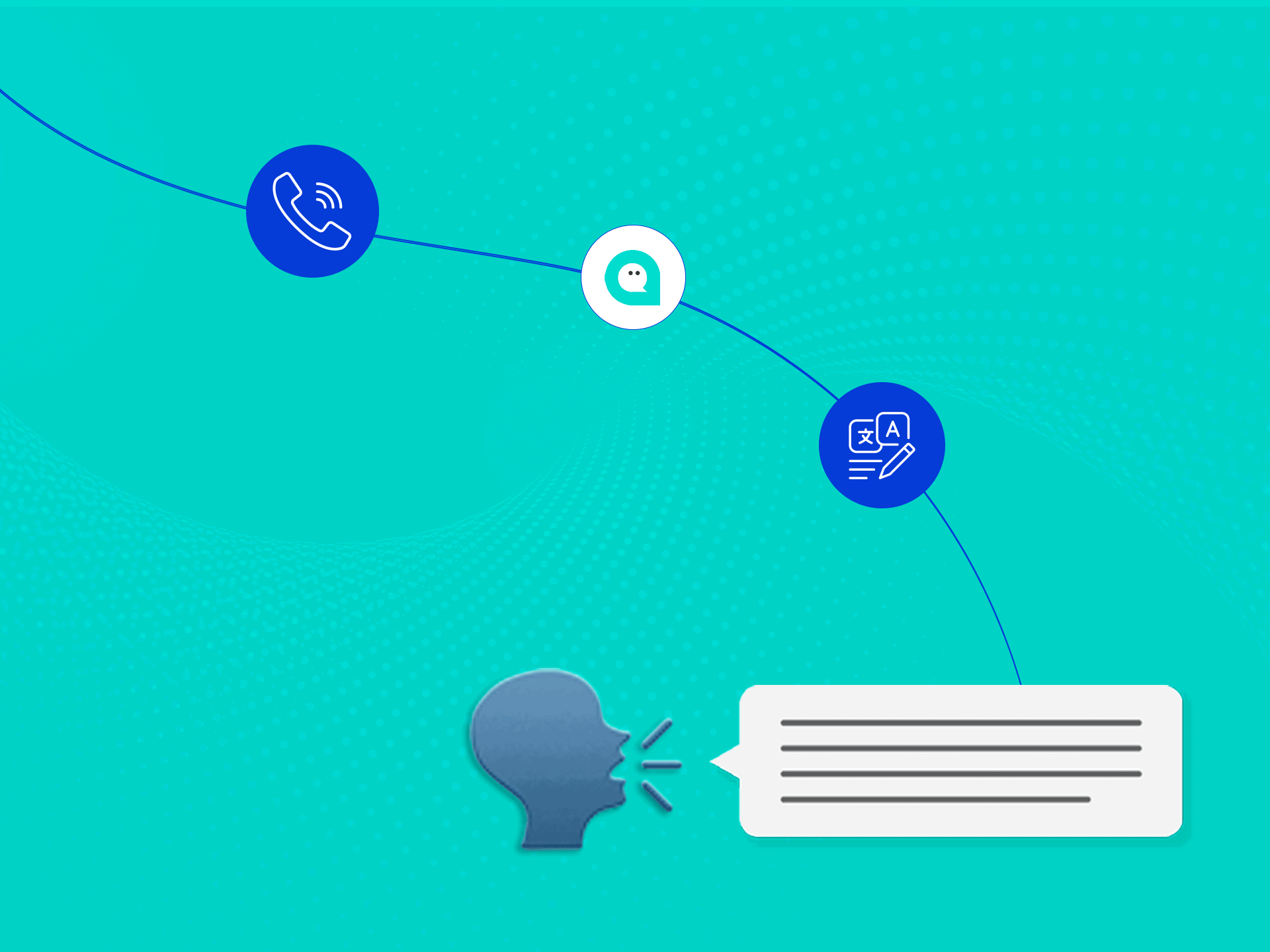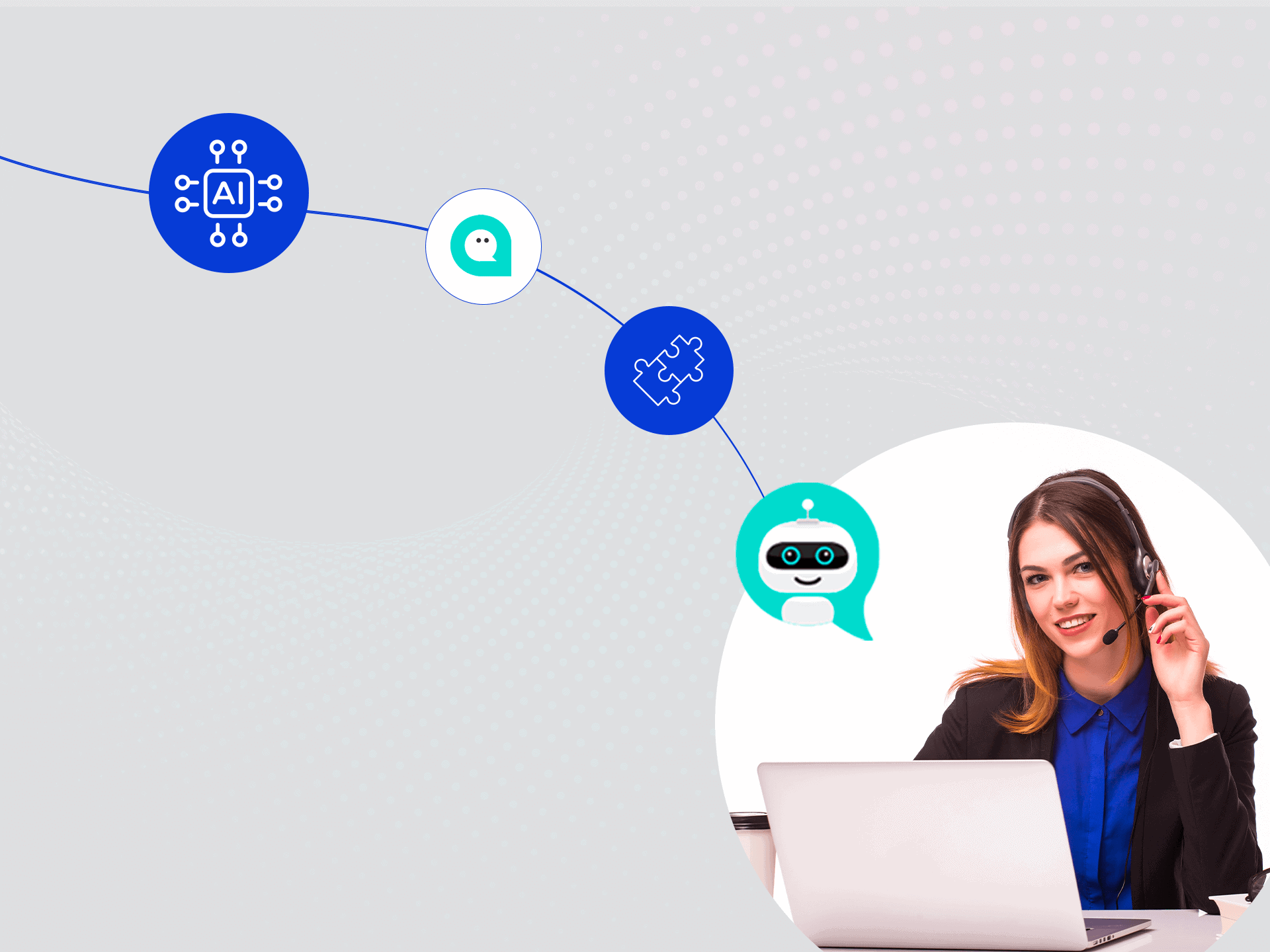Technology is continually changing the way companies interact with their customers. One of the emerging tools in this revolution is ChatGPT (Generative Pre-trained Transformer), the artificial intelligence system that in recent months is literally disrupting our approach to the world. The interest generated by AI and machine learning does not exclude any sector, and the contact center sector is also involved in this inevitable transformation. But how is chatGPT impacting how customer services and contact centers are managed? What are the benefits, application possibilities, and risks involved?
What is ChatGPT?
ChatGPT is a conversational artificial intelligence system developed by OpenAI and unveiled in late 2022. It is an advanced form of chatbot, capable of conversing in natural language, answering questions and executing requests in a coherent and articulate manner.
ChatGPT is trained on a huge amount of data and uses machine learning to generate texts very similar to those written by a human being. His strength is versatility: he can converse about any topic.
The new frontier of artificial intelligence in contact centers
ChatGPT to date obviously represents a breakthrough in artificial intelligence, relying on deep learning models to generate human-like conversations. This technology, applied to contact centers, can make it possible to automate and improve the management of interactions with customers, offering quick, accurate and personalized responses. With the ability to understand natural language and adapt to specific context, ChatGPT is transforming communication between customers and agents.
Enhanced operational efficiency
One of the main benefits of ChatGPT in contact centers isincreased operational efficiency. Agents can be supported by ChatGPT to answer frequently asked questions or provide basic information, freeing up valuable time to deal with more complex, high-value requests. This results in increased productivity, reduced waiting times and more efficient management of resources.
Optimized customer experience
Customer experience has become a key priority for companies, and ChatGPT can significantly contribute to improving it. With its ability to provide immediate and personalized responses, ChatGPT can meet customers' needs quickly and effectively. In addition, chatbots can give 24/7 customer support, allowing customers to get answers to their questions any time and day of the year. This leads to higher user satisfaction, improving brand reputation and promoting loyalty.
Cost reduction
The use of Chat GPT can also help reduce contact centeroperating costs. With an evolved chatbot that can handle customer questions, companies can reduce the number of operators needed, saving on staff costs. In addition, GPT chats can also reduce the workload of human operators, allowing them to focus on more complex, high-value tasks.
Human interaction and agent support
Despite the automation provided by ChatGPT, however, human interaction remains a key element in contact centers. ChatGPT can be used to support agents, offering suggestions, additional information, and ready-to-use answers. This allows operators to provide more personalized and higher quality service, creating a more empathetic and satisfying customer service experience.
Automation of frequently asked questions
Chat GPT is particularly effective in handling customers' frequently asked questions. It can be programmed with a set of predefined answers for common questions, ensuring that customers receive accurate and consistent information, thus relieving operators of an often repetitive and uninspiring workload.
ChatGPT use cases in contact centers
Here are some possible use cases of ChatGPT to improve customer service:
- Customer service base: ChatGPT can independently handle simple and recurring questions about products, shipments, payments, etc., through chat, decreasing the load on human operators.
- Conversational pre-screening: ChatGPT can do an initial screening of requests and route them to the most appropriate channel, such as switching from chat to phone for complex issues.
- Response suggestion: During conversations with operators, ChatGPT can suggest optimal responses in real time, making their responses faster and more accurate.
- Content creation: ChatGPT can automatically generate text for chatbots, FAQs, knowledge bases, using natural language.

Opportunities and challenges
The introduction of ChatGPT in contact centers opens up new opportunities, but also brings some challenges. There is a need for appropriate model training and constant supervision to ensure that generative responses are accurate and meet the company's standards. In addition, it is important to to balance automation with human interaction to ensure a balanced and quality customer experience.
The risks of early adoption
As we said, the adoption of ChatGPT in contact centers does indeed have some risks and limitations if not handled with care:
- Answers may not always be correct and verified.
- Lack of empathy and human approach can negatively impact the experience.
- Customers may not feel comfortable talking to a machine.
- Automatically generated texts may contain bias or errors.
- Expectations on technology are likely to be too high.
It is therefore essential to integrate ChatGPT intelligently with human operators., without underestimating the critical aspects.
XCALLY and the Human Singularity AI
It is likely that in the future, companies will increasingly adopt AI means such as ChatGPT to enhance and make customer service more efficient. In a perspective of change, of greater use of AI-derived systems, XCALLY chooses to maintain the focus on the human relationship, albeit supported by the best machine learning technologies.
A hybrid human-machine approach and ethical data governance enables responsible management of the enormous potential of this emerging technology.
Want to find out how to better integrate AI and chatbots into your customer service processes?




